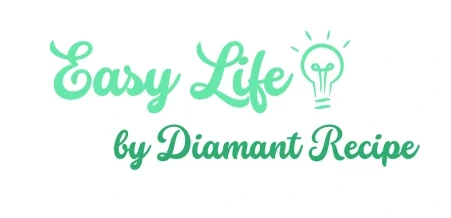Introduction
Happiness isn’t just a random emotion that shows up when life goes well — it can actually be trained and cultivated like a muscle. By turning happiness into a daily habit, you create a mindset that sustains you through challenges and amplifies your joy during good times. The goal isn’t to ignore struggles, but to design your life so that happiness becomes a natural, repeatable state — something you simply can’t quit.
Why Happiness Should Become a Daily Habit
- It builds resilience – Life has ups and downs, but a happiness routine helps you recover faster.
- It rewires the brain – Neuroscience shows that repeated positive behaviors strengthen neural pathways, making optimism more natural over time.
- It raises your baseline – Instead of chasing temporary highs, consistent habits gradually shift your overall level of contentment.
- It gives lasting energy – A positive mindset enhances motivation, productivity, and creativity in all areas of life.

15 Proven Strategies to Make Happiness a Habit
1. Practice Gratitude Daily
Write down three things you’re thankful for every morning or evening. Gratitude is one of the most researched and reliable ways to increase happiness.

2. Start Small and Simple
Don’t overhaul your life overnight. Choose one positive habit (like smiling at strangers or journaling for 2 minutes) and repeat it daily until it sticks.
3. Focus on the Present Moment
Mindfulness trains your brain to savor what is happening now instead of worrying about the past or future. Even two minutes of conscious breathing can shift your mindset.

4. Reframe Negative Thoughts
When something bad happens, ask yourself: “What can I learn here?” or “Is there another way to see this situation?” Cognitive reframing reduces stress and boosts optimism.
5. Prioritize Relationships
Strong social connections are among the greatest predictors of long-term happiness. Call a friend, hug a loved one, or simply have a meaningful conversation daily.
6. Use the “Two-Minute Rule”
From Atomic Habits: if something takes less than two minutes, do it immediately. This prevents procrastination and gives a quick sense of accomplishment.
7. Exercise for Your Mood
Physical movement releases endorphins and serotonin. Even a 10-minute walk outdoors can instantly lift your spirits.

8. Sleep with Intention
Good sleep is the foundation of a stable mood. Create a bedtime ritual (no screens, dim lights, light stretching) to ensure better rest.
9. Train Your Brain with Positive Inputs
Limit constant exposure to negativity (toxic news, draining conversations). Read uplifting books, listen to inspiring podcasts, or watch something that makes you laugh.
10. Celebrate Small Wins
Instead of waiting for huge achievements, recognize daily progress. Writing “done” on a task list triggers dopamine and builds momentum.
11. Speak the Language of Positivity
Replace “I’m fine” with “I’m doing well” or “I feel great.” Words shape emotions and can subtly reprogram your brain.

12. Serve and Give Back
Acts of kindness, even small ones, generate a “helper’s high” and remind you that your life has impact.
13. Visualize Your Best Self
Spend a few minutes each day imagining the person you want to be. Visualization strengthens your belief that happiness and growth are achievable.
14. Disconnect to Reconnect
Take breaks from screens. Nature, journaling, or simply being still helps you reset and find balance.

15. Anchor Happiness into Routines
Attach happiness habits to things you already do. For example: after brushing your teeth, think of one good thing that happened that day.
How to Make These Habits Stick
- Be consistent – Small actions practiced daily are more powerful than rare big efforts.
- Stack habits – Pair a new happiness habit with an existing one (gratitude after morning coffee).
- Track your progress – Use a calendar, journal, or app to mark completed habits.
- Reward yourself – Positive reinforcement helps habits last.
- Be patient – Research shows it takes on average 66 days to make a new behavior automatic.
Common Obstacles and Solutions
| Challenge | Solution |
|---|---|
| “I don’t have time” | Start with just 2 minutes a day |
| “I forget to do it” | Use reminders or visual cues |
| “It feels fake” | Begin with gratitude or small wins that feel authentic |
| “I give up after missing a day” | Remember: missing once doesn’t erase progress — restart immediately |
| “I get discouraged” | Focus on progress, not perfection |
Conclusion
Happiness is not luck, it’s a skill. By practicing gratitude, mindfulness, positive thinking, connection, and kindness, you train your brain to default to joy. Over time, these actions become automatic — a part of your lifestyle that no setback can erase.
When happiness becomes a habit, it’s no longer something you chase. It’s who you are.

